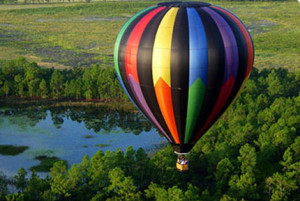Это интересно...
![]() Почитайте рассказы, написанные непрофессиональными авторами и поделитесь своими собственными!
Почитайте рассказы, написанные непрофессиональными авторами и поделитесь своими собственными!
It's interesting...
- "Dreamt" is the only English word that ends in the letters "mt".
- A cat has 32 muscles in each ear.
- Al Capone's business card said he was a used furniture dealer.
- A goldfish has a memory span of three seconds.
- On an American one-dollar bill, there is an owl in the upper left-hand corner of the "1" encased in the "shield" and a spider hidden in the front upper right-hand corner.
- The name for Oz in the "Wizard of Oz" was thought up when the creator, Frank Baum, looked at his filing cabinet and saw A-N, and O-Z, hence "Oz."
- The word "samba" means "to rub navels together."
- The very first bomb dropped by the Allies on Berlin during World War II killed the only elephant in the Berlin Zoo.
- Sherlock Holmes never did say "Elementary, my dear Watson."
- More people are killed annually by donkeys than die in air crashes.
- Самая популярная буква в английском — “е”. Именно она чаще всего встречается в словах.
- Всего два слова имеют окончание “-gry”. Это angry и hungry.
- А окончание “-dous” имеют только четыре слова: stupendous, hazardous, horrendous и tremendous.
- Bookkeeper — единственное слово без дефиса, где встречаются три удвоенные буквы. Другие подобные слова, например sweet-toothed, требуют дефиса.
- Слов, начинающихся с буквы “s”, больше, чем слов, начинающихся с любой другой буквы.
- Uncopyrightable — самое длинное слово, состоящее из неповторяющихся букв.
- Предложение, которое включает все буквы алфавита, англичане называют pangram. Звучит оно так: “The quick brown fox jumps over the lazy dog”.
- Точка над буквами “i” и “j” называется superscript dot.
-
Знак @, который мы мило обозвали «собачкой», в английском языке называется более уважительно: “the at sign” или “the at symbol”.

Изучение английского — это путешествие на воздушном шаре. С каждой минутой все увлекательнее.
- Самое короткое предложение состоит из трех букв: “I am”.
- Каждые два часа в английском языке появляется новое слово.
И последний занимательный факт: в России английский язык знают не более 13-17% россиян. Даже в менее развитых странах этот процент намного выше. Русские люди во всем привыкли быть первыми, не так ли? Давайте докажем, что и в знании языков мы лучшие! Удачи в обучении!
From site: http://englex.ru/english-in-numbers-and-facts/
23 невероятных факта о Великобритании
1. В Британии проживает более 30 тысяч человек по имени Джон Смит.
2. Уинстон Черчилль был рожден в женском туалете во время бала.
3. В Доме Парламента запрещено умирать.
4. В Великобритании есть профессия стояльщика в очереди. Цена работы человека, готового переждать очередь вместо вас – 20 фунтов.
5. Шотландия может похвастаться самым коротким авиарейсом в мире. Он длится 1 минуту 14 секунд с острова Вестра на остров Papa Westray.
6. До того, как получить название «Лондон», британская столица успела побыть Лондониумом, Люденвиком и Люденбургом.
7. Около 25 процентов лондонцев были рождены не в Великобритании. В целом в столице можно услышать около 300 разных языков.
8. Букингемский дворец был построен на месте публичного дома.
9. У королевы Анны было 17 детей и ни одного наследника: все они умерли раньше нее.
10. В Англии больше цыплят, чем людей.
11. Если вы разместите на конверте марку с королевским изображением вниз головой, то это может быть расценено как измена.
12. В Англии беременная женщина имеет право облегчиться абсолютно где угодно.
13. Палата Общин - единственное место в Британии, куда не может войти английская королева, поскольку она не является членом Палаты.
14. В Великобритании нет единого документа конституции.
15. Один из самых известных шотландских напитков, виски, на самом деле изобрели в Китае.
16. Ежегодно в лондонской подземке теряют около 80 тысяч зонтиков.
17. Самая короткая война в истории была между Англией и Занзибаром в 1896 году. Занзибар сдался спустя 38 минут.
18. На протяжении трехсот лет – с 1066 по 1362 год – официальным языком в Англии был французский.
19. Британская полиция не носит оружия, за исключением чрезвычайных ситуаций.
20. Почему в Великобритании левостороннее движение? Бытует мнение, что кучеры, погонявшие лошадей, кнут держали в правой руке и могли случайно задеть пешеходов, идущих по тротуару. Таким образом экипажи решено было перенести на левую сторону дороги.
21. Другая теория гласит, что эта традиция пришла в Британию из морских правил, где одно судно должно было пропускать другое, которое приближалось с правой стороны.
22. В Шотландии проживает самый высокий процент рыжеволосых людей в мире. Около 13% населения имеют рыжие волосы, а примерно 40% несут рецессивный ген.
23. Среднегодовое количество осадков в Лондоне составляет 584 мм, что меньше, чем в Риме или Сиднее. Так что вечные лондонские дожди — миф.
Strange but interesting facts
A group of geese on the ground is a gaggle, a group of geese in the air is a skein.
The combination "ough" can be pronounced in nine different ways. The following sentence contains them all: "A rough-coated, dough-faced, thoughtful ploughman strode through the streets of Scarborough; after falling into a slough, he coughed and hiccoughed."
The word "Checkmate" in chess comes from the Persian phrase "Shah Mat", which means "the king is dead".
Texas is the only state that is allowed to fly its state flag at the same height as the U.S. flag.
Since light travels faster than sound, isn't that why some people appear bright until you hear them speak?
It is possible to lead a cow upstairs but not downstairs.
Hawaiian alphabet has 12 letters.
Men can read smaller print than women; women can hear better.
Percentage of Africa that is wilderness: 28%. Percentage of North America that is wilderness: 38%.
Percentage of American men who say they would marry the same woman if they had it to do all over again: 80%. Percentage of American women who say they'd marry the same man: 50%.
From site: http://www.fluent-english.ru/
- (Три четверти британских детей не знают, как сварить яйцо, обнаружено в исследовании)

Three-quarters of British children do not know how to boil an egg, new research shows.
Many youngsters have no idea how long they should leave an egg on the hob for, with a quarter believing it should remain in the saucepan for at least 10 minutes.
A further 12 per cent of children admitted that they did not have a clue.
The study also found that almost half of youngsters never or rarely help prepare evening meals, even though around a third of parents want them to take part.
Experts said that it is important to encourage children to take part in cooking as it helps them improve their mathematical skills.
The poll for the supermarket chain Morrisons said 37 per cent of children preferred watching television or surfing the internet to cooking.
Two in five said they were too stressed about homework or too tired to help cook.
It also revealed that a third of parents had learned to cook from their own mothers and fathers, and 80 per cent viewed culinary ability as an important skill.
Study author Annabel Karmel said: "Today's parents just don't have the time or the patience to get the children involved in the kitchen.
A third of parents admit it's easier to let their children watch television than to enlist their help with the evening meal.
Cooking is a great way for children to learn about maths, measuring, and understanding time, so it's worth the effort.
What's more it's a great way to get fussy eaters to try new foods."
She added that by the age of six, children should be able to chop vegetables, grate cheese and boil an egg, and that by 13, youngsters should be cooking fish, chicken and meat and baking potatoes.
By the age of 16 teenagers should have mastered risottos and pasta dishes.
The study was based on responses from 1,000 children and 1,000 parents, who were polled online.
- New research on the power of smiling / Новое исследование силы улыбки

Vocabulary:
advice - совет, рекомендация
according - согласно
impression - впечатление, ощущение
carry out (carried out; carried out) - выполнять, осуществлять
grin - ухмылка; оскал зубов; усмешка
considerably - значительно, много
response - ответ, отклик
avoid (avoided; avoid) - избавлять, обойтись без
wide - широкий
evidence - ясность, очевидность
practised - искусный, опытный
fake - поддельный, фальшивый
lacking in warmth - лишённый тепла, нуждающийся в тепле
fake - поддельный, фальшивый
insincere - лицемерный, неискренний, притворный
flood (flooded; flooded) - заливать, затоплять; наполнять
There are any number of sayings about the power of the smile. 'Peace begins with a smile.' 'A smile is the universal welcome.' 'Life is short but a smile only takes a second.' All good advice. But it may not be as simple as that. According to new research, if you want to make a good impression when you meet people, it's not just that you smile. It's how you smile.
The study was carried out by the Go Group, a business support organisation based in Scotland. They looked at people's reactions to different grins. They found that responses varied considerably.
Through this they say they have found three types of smile to avoid: The first is 'The Enthusiast', very wide, all teeth showing, possible evidence that you can have too much of a good thing. Then there is the 'Big Freeze', a fixed grin that looks practised and fake. Finally comes 'The Robot', a small, thin smile, lacking in warmth.
The group also warns about smiling too quickly, saying it can make you look insincere. The best smile, they say, is slower and floods naturally across the whole face.
(Jonny Hogg, BBC News)
Note:
a second - a very short period of time. There are 60 seconds in one minute
to make a good impression - to make people think well of you
grins - smiles
responses varied considerably - people reacted very differently
to avoid - not to do
enthusiast - person who is very positive and encouraging, who always looks on the bright side of things
have too much of a good thing - (fixed expression) it's possible that if you have something that you really like (a treat) too often, you'll eventually not enjoy it very much
fake - false, not true or genuine
lacking in warmth - not having very much friendliness and openness
floods - spreads, moves across
- beguiling / intriguing smile - заманчивая, интригующая улыбка
- cheerful / happy smile - счастливая улыбка
- disarming smile - обезоруживающая улыбка
- fixed / forced smile - натянутая улыбка
- infectious smile - заразительная улыбка
- radiant / sunny smile - лучезарная, сияющая улыбка
- ready smile - готовая, заученная улыбка
- sardonic smile - сардоническая улыбка
- supercilious smile - высокомерная, презрительная улыбка
(From the site: correctenglish.ru)




